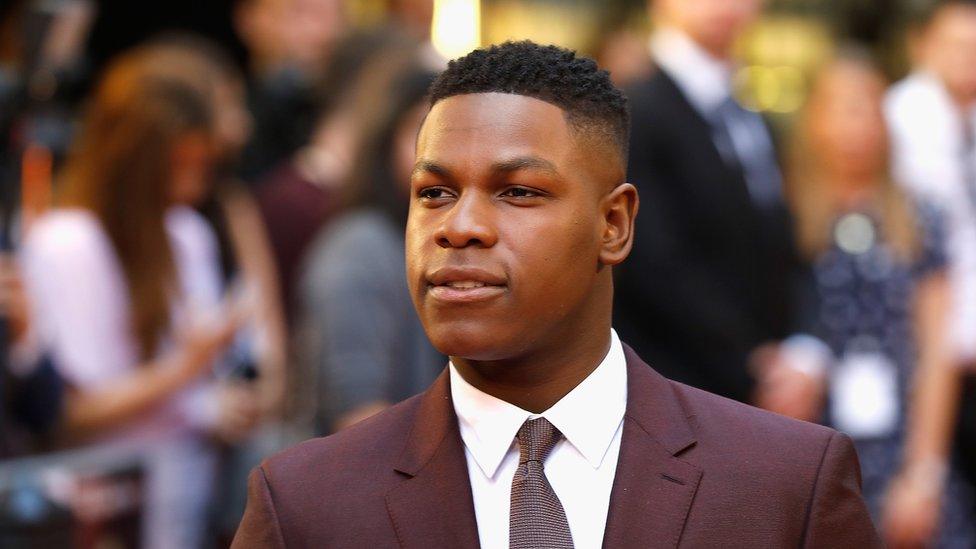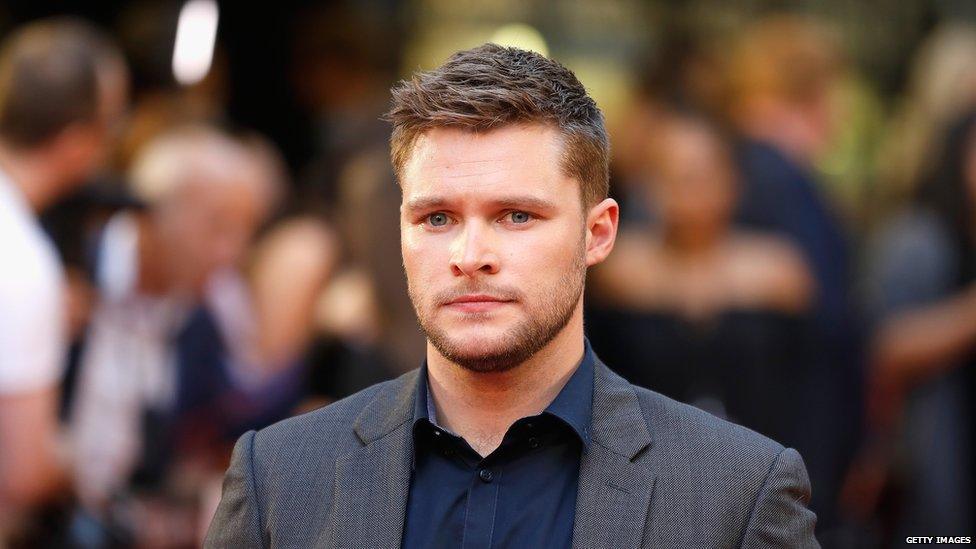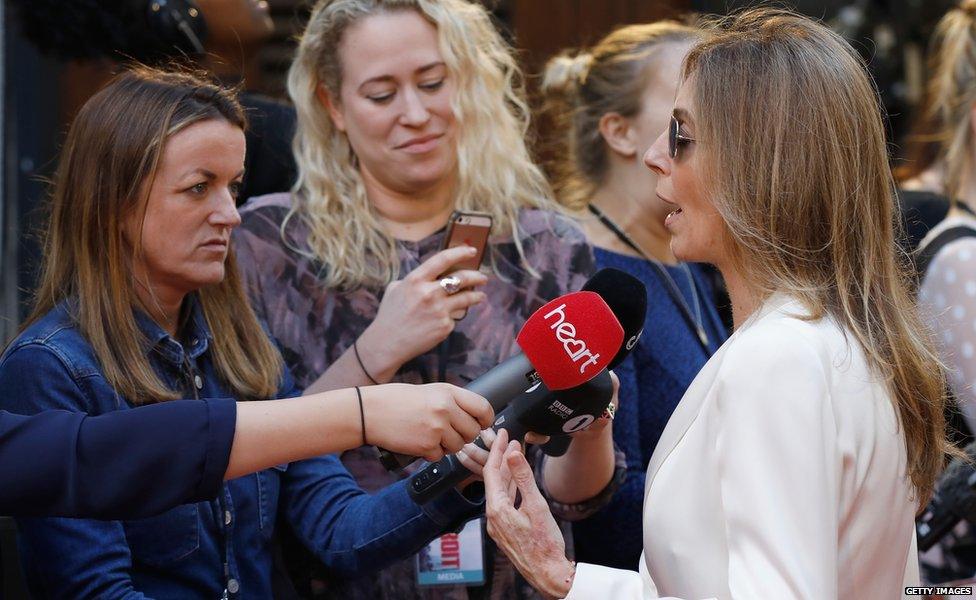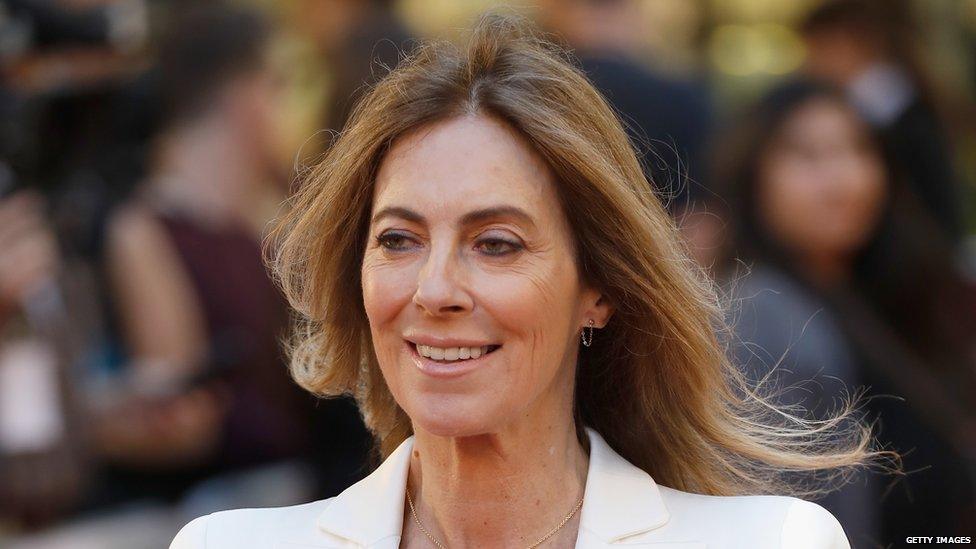The stars of Detroit on why the film about the 1967 race riot is 'timely'
- Published

John Boyega at the European premiere in London last night
A film about the police massacre of African-Americans during the civil rights era has echoes in today's society, its stars have told Newsbeat.
Detroit tells the story of three black men murdered during the city's riots in 1967.
"This is timely. It's so unfortunate that I'm having to say that," says Star Wars actor John Boyega.
He says the violent white supremacist rally in Charlottesville, Virginia, shows racism is still a big problem.
Watch the trailer for Detroit., external
Warning: Third-party content, may contain ads
"The crazy things that have happened for the last few days, reflect to what happened 50 years ago in Detroit in 1967. We're still having the same conversation," he says.
John plays Melvin Dismukes, a security guard drawn into the violence at the Algiers Motel, where the three men were killed by police.
"Entertainment is obviously there to drag us away from our world, but the struggle with this one is that you go into the cinema expecting to be transported somewhere.
"You're transported into another version of the world that we live in today."

Jack Reynor has also appeared in Free Fire and Sing Street
Jack Reynor, who plays white police officer Demens, agrees.
"This issue is no less relevant now than it was in 1967," says the Irish actor, though he thinks some progress has been made.
"In Charlottesville there's a group of people from different ethnic backgrounds who are resisting and who are protesting against this white supremacy and this neo-nazism. That's important to remember.
"However, we can't lose sight of the fact that we're somehow allowing right wing ideology and extremism back into our political systems."

Detroit director Kathryn Bigelow is interviewed by Newsbeat on the red carpet
Detroit has been widely praised by critics, although some have questioned whether it was appropriate for Kathryn Bigelow to direct it.
Kathryn, who won the best director Oscar for her film The Hurt Locker, is white and some critics have suggested she couldn't fully understand the racial struggles shown in the film.
John Boyega says he knew the movie would be controversial.
"We all knew that this was going to ruffle some feathers. We all knew the audience were going to react in a way that was emotional, some of which was good, some bad."

Kathryn Bigelow has been a controversial choice as director
"My hope is that this sparks a conversation that will lead towards change," he says.
"I do think there are more of us that are good out there. We just need to find our voice."
Find us on Instagram at BBCNewsbeat, external and follow us on Snapchat, search for bbc_newsbeat, external